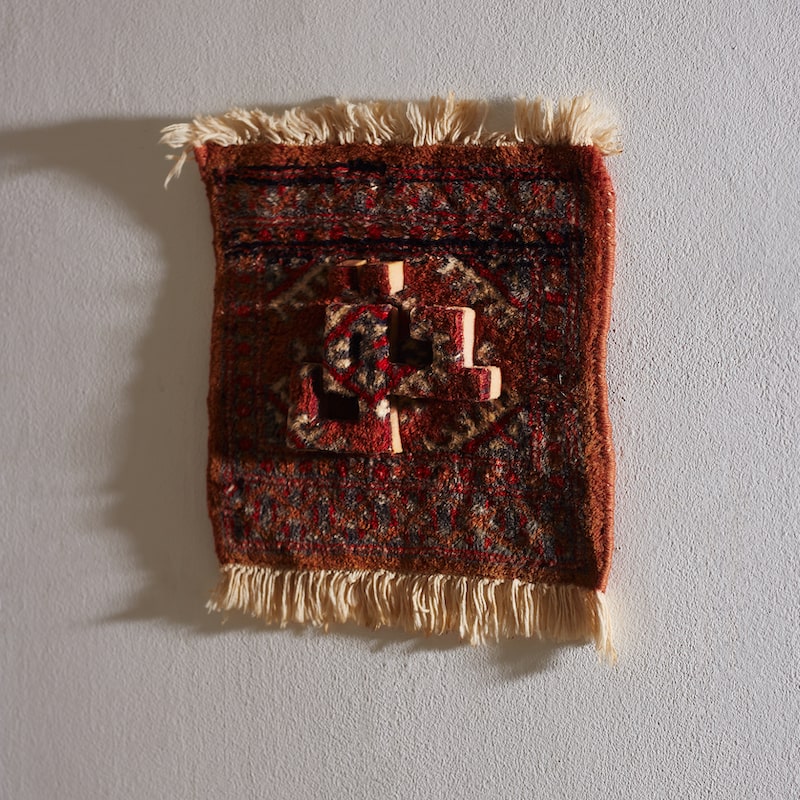
Anonymous’s story: “I was only 9-years old. I had to cover my hair and body after the Holy Communion service at school. I was brainwashed.”
Written in Farsi:
«من فقط ۹سال داشتم. بعد ازجشن تکلیف مجبور شدم موها و بدن خود را در انظار عامه بپوشانم. من شست و شوی مغزی شدم.»
Carpet Codes, a secret platform
for Iranian women
to share stories, hopes, and dreams.
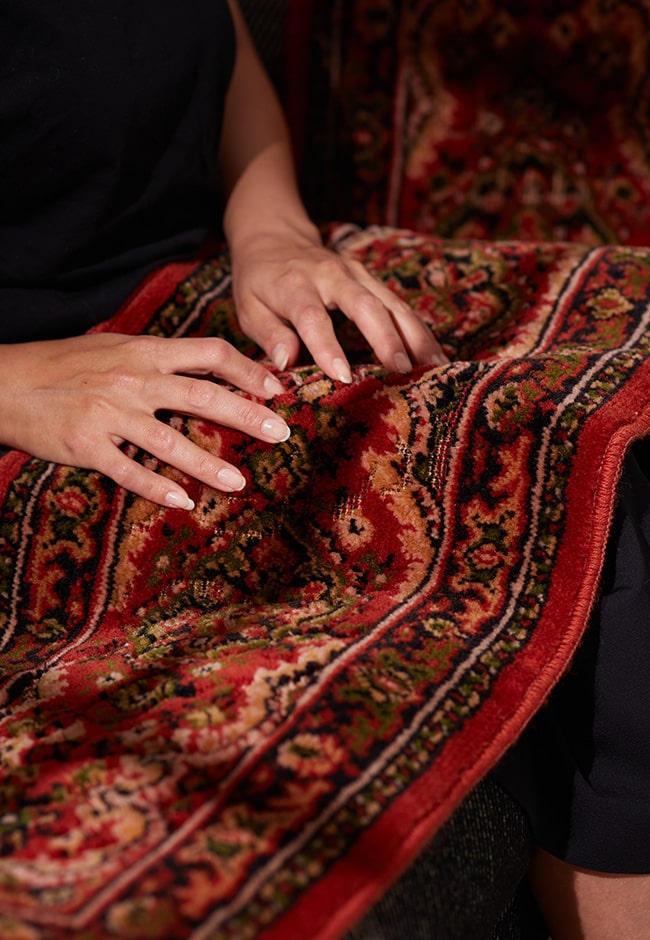
The subject of my BA final project (Carpet Code) was resistance in societies with high levels of suppression and conflict, such as Iran. My focus was on Iranian women who form half of Iran’s population but face suppression in their everyday lives. Proven the capability of soft activism to survive high levels of censorship, my project explored craftivism as a possible tool women could utilize. To communicate and empower each other in a silent yet powerful fashion whilst avoiding consequences and creating a safe space.
Craftivism (craft+activism) is a growing worldwide movement where artists, activists, and the general public use their crafting skills for political purposes. Going to a protest or calling your local politician is no longer the only way to raise your voice particularly in Iran. I used Craftivism as a practical method that enables women to voice their issues and create spaces in which they can share their thoughts and ideas and protest softly and discreetly.
After some first-hand experience of censorship and repression, I decided to use the steganographic practice. I created a platform for women to share their stories since most Iranian women have access to carpets. I chose the carpet as a covert system to camouflage women’s sensitive stories. Carpets bring high value to the process of my project as they are transformed into a bank of data. Craftivism creates a dialogue in the hopes of creating a positive change via personalized activism.
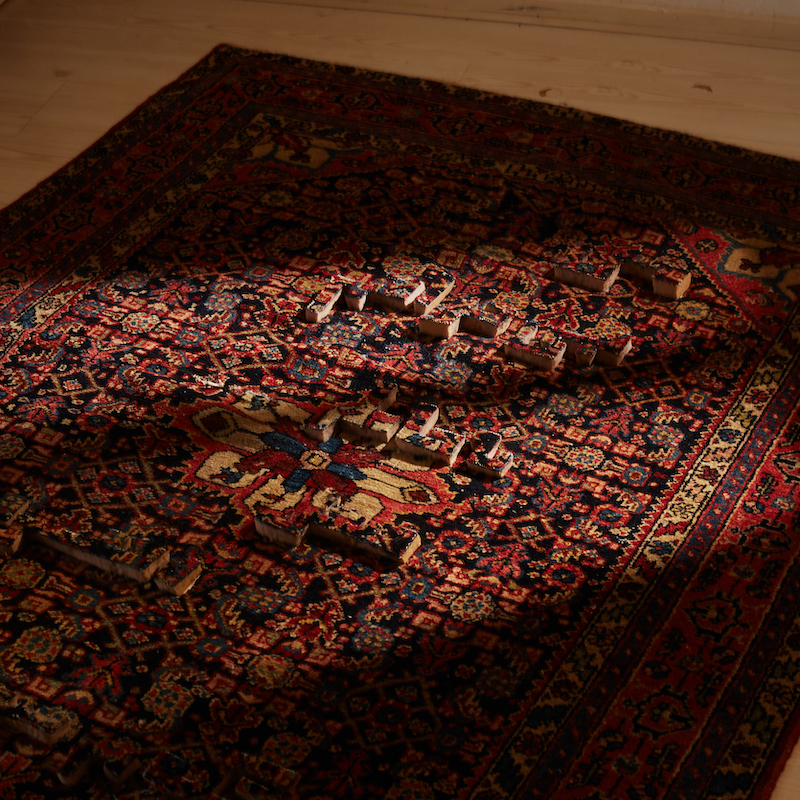
Firouzeh’s daughter is working for a TV network, highly criticised by the Iranian government, based in London. Iranian authorities have been accusing Iranian journalists for working for ‘counter- revolutionary’ (zed-e enghelab) establishments. Often, relatives of these journalists who reside in Iran are pressured and threatened by the government officials. She said: (translation of the text in English) “I don’t want to be convicted because of my daughter’s job” Written in Farsi: «من نمی خواهم به خاطرشغل دخترم محکوم شوم»
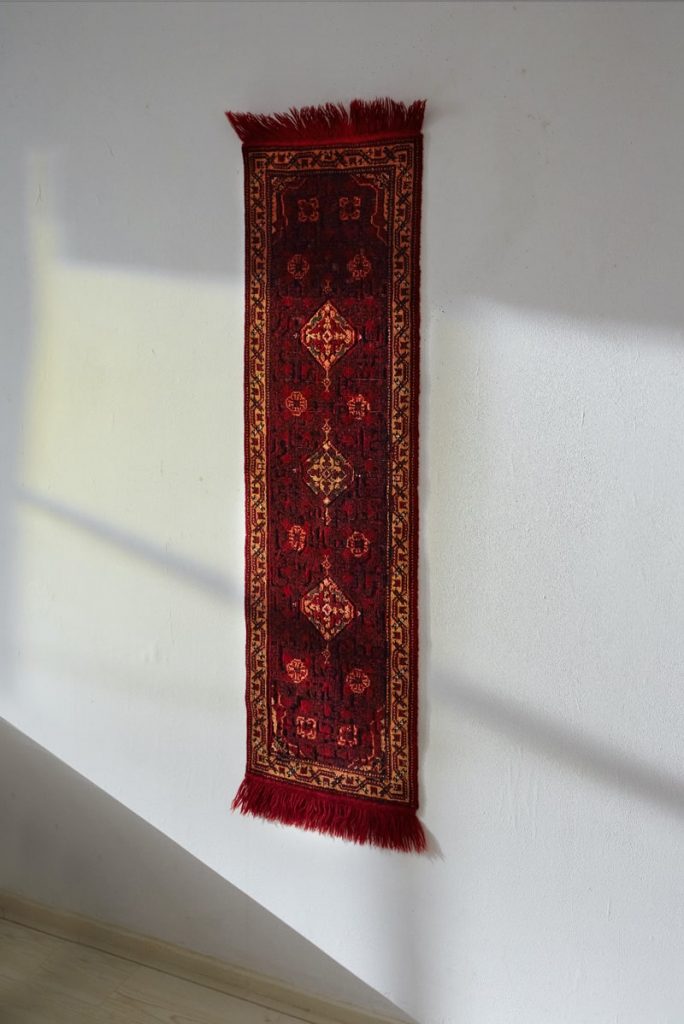
This woman decided to have all those negative words on her mind engraved in the carpet she’s walking on:
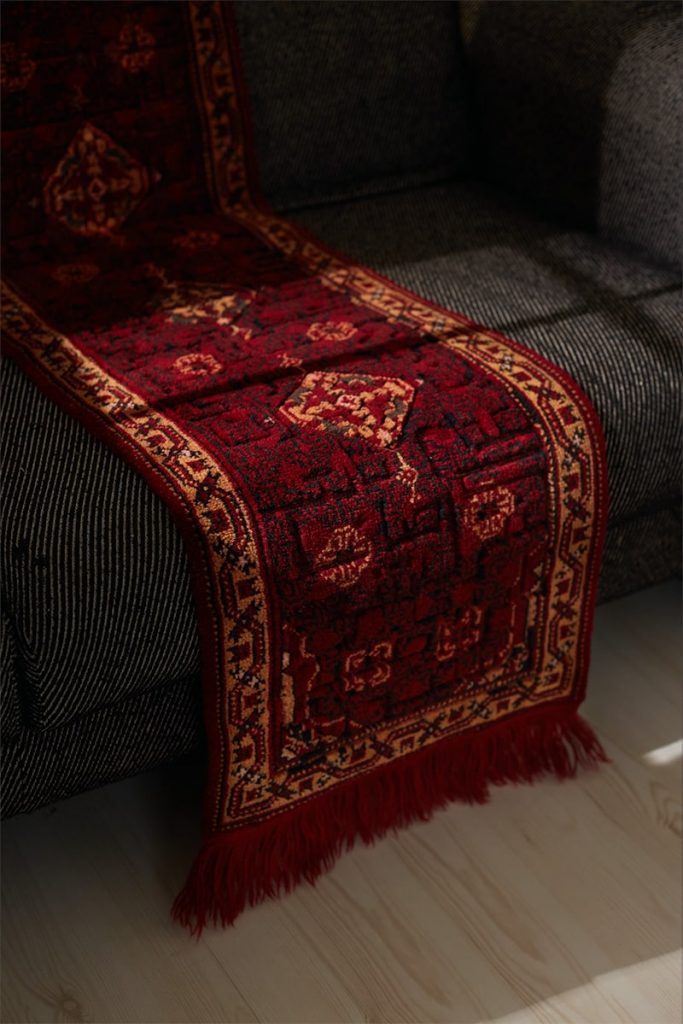
|
شرم Shame |
|
|
|
مردسالاری Patriarchy
نژاد پرستی Racism
مرز Border
مذھب Religion
Totalitarianism استبداد
حجاب Hijab
Polygamy Gender ھمسری نابرابری
Inequality جنسی
Discrimination تبعیض
Sin گناه
Regime رژیم
Supreme leadership حکومت ولایت فقیه
Femicide زن کشی